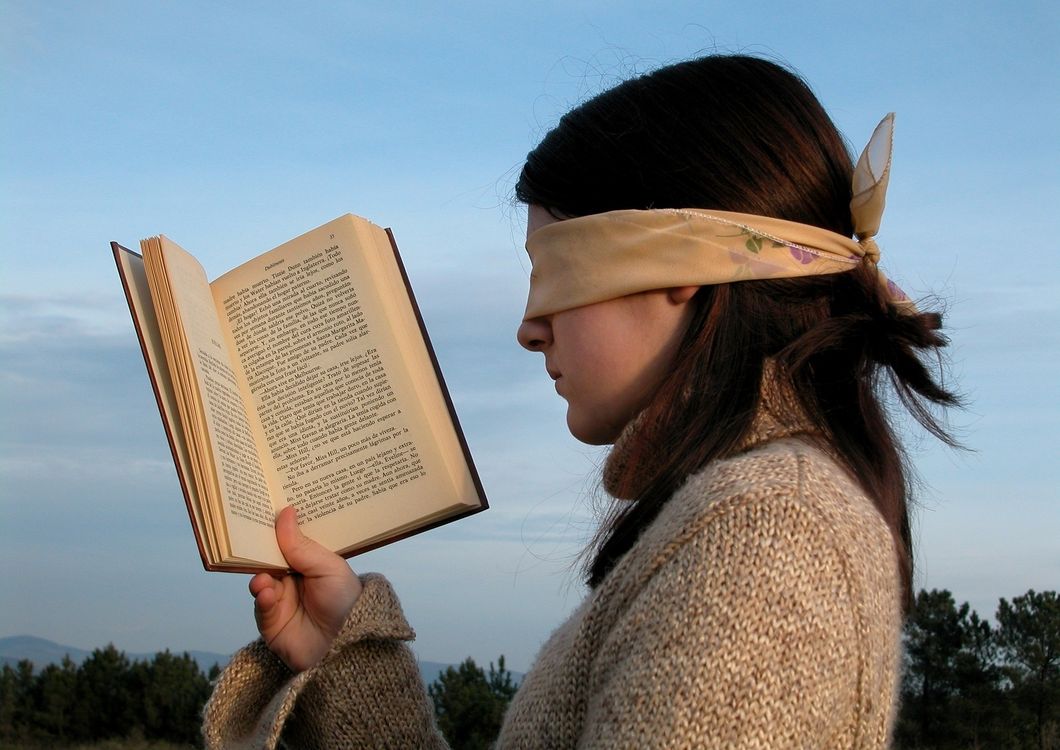Ever since I became an English Major, I've heard the same, typical questions that people tend to ask: "So, you want to teach?" "What do you want to do with English?" "What's your favorite book?" etc… But one of the more interesting questions I'm occasionally asked is, "What are some tips to read books?" That is a really good question! Now, I don't know about other English Majors, but I don't have a good answer to this, not at first, anyway. After some deep meditation and a little bs-ing, I have discovered five effective methods to help even the most illiterate of people tackle intimidating classics such as "Moby Dick," "Les Miserables" and "One Fish, Two Fish."
1. Pretend To Be Interested
As the age old adage goes, "Fake it till you make it." It makes sense to read what's interesting to you, but if you have to read something that's not interesting, pretend that it is! Force yourself to take interest in the seemingly bland and boring. A while ago, I read a short tale about a guy who looked hideous. So much so that he hid his face behind a mask for 40 years without ever taking it off. After all those years, the man threw away the mask. Over time, the man's face grew into the beautiful mask, molding him to take its shape, thus becoming beautiful. Perhaps this story has some questionable connotations, but the idea is interesting. If you put in the effort to be something you are not, you will eventually become that thing. For the ugly man, he became beautiful. And perhaps for you, pedantic.
2. Read Every Word On The Book Except For The Actual Content
This includes the Title, the Table of Contents, the title of each section and chapter, anything on the back of the book, the About the Author blurb, the review blurbs on the book and the Special Thanks page. This won't actually help you finish the book, but it will give you enough material to pretend that you have…
Just kidding! The idea behind this concept is to give you an idea of what large ideas are being presented in the book. Sometimes, it's easy to get lost in the nuances of side points and counterarguments if you're just diving into the book without a road map. Besides, there is a lot of work put into everything surrounding the content that readers generally don't take advantage of. Each book title, subtitle, chapter title, etc, was created with us, the struggling readers, in mind!
3. Have A Conversation With The Author

There are three ways to have a conversation with the author of the book. The first is to find a way to call the author, write to them or visit them. The second is to consult the spirits to connect your consciousness with theirs, allowing a free, unobstructed exchanged of ideas, emotions and experiences; this is the most direct approach if your author has already passed into the next realm. That third and final way is to have a one-way conversation with the author by actively asking him or her questions about the issues talked about. Believe it or not, this is probably the most difficult method because it requires you, the reader, to actively search for meaning in the author's words.
4. Change Your Environment
My Grandpa would always say, "You're unique, just like everybody else!" This goes for your reading environment, as well. Not everybody can cozy up on the couch with hot tea and a good book! I will fall asleep, regardless of the time of day, the amount of caffeine I've consumed or the amount of stress I'm under. Instead, I prefer to read on a hard surfaced chair at a library. I'm somewhat comfortable, but not so comfortable that it distracts me. And the atmosphere is quiet, but not annoyingly so. A friend of mine would only read with his eyes shut! But after a while, he realized that it was bad for his hat and made his eyebrows red hot, so he stopped.
Applying these methods the next time you pick up a book will, without a doubt, ambiguously affect your reading experience! And if I may, I would like to suggest a book, "How To Read A Book" by Montgomery J. Adler. His book isn't advice on how to finish reading a book, but rather how to actually read a book, any book! His ideas are interesting and thought-provoking, and I highly recommend it.






 The minimum wage is not a living wage.
StableDiffusion
The minimum wage is not a living wage.
StableDiffusion
 influential nations
StableDiffusion
influential nations
StableDiffusion












